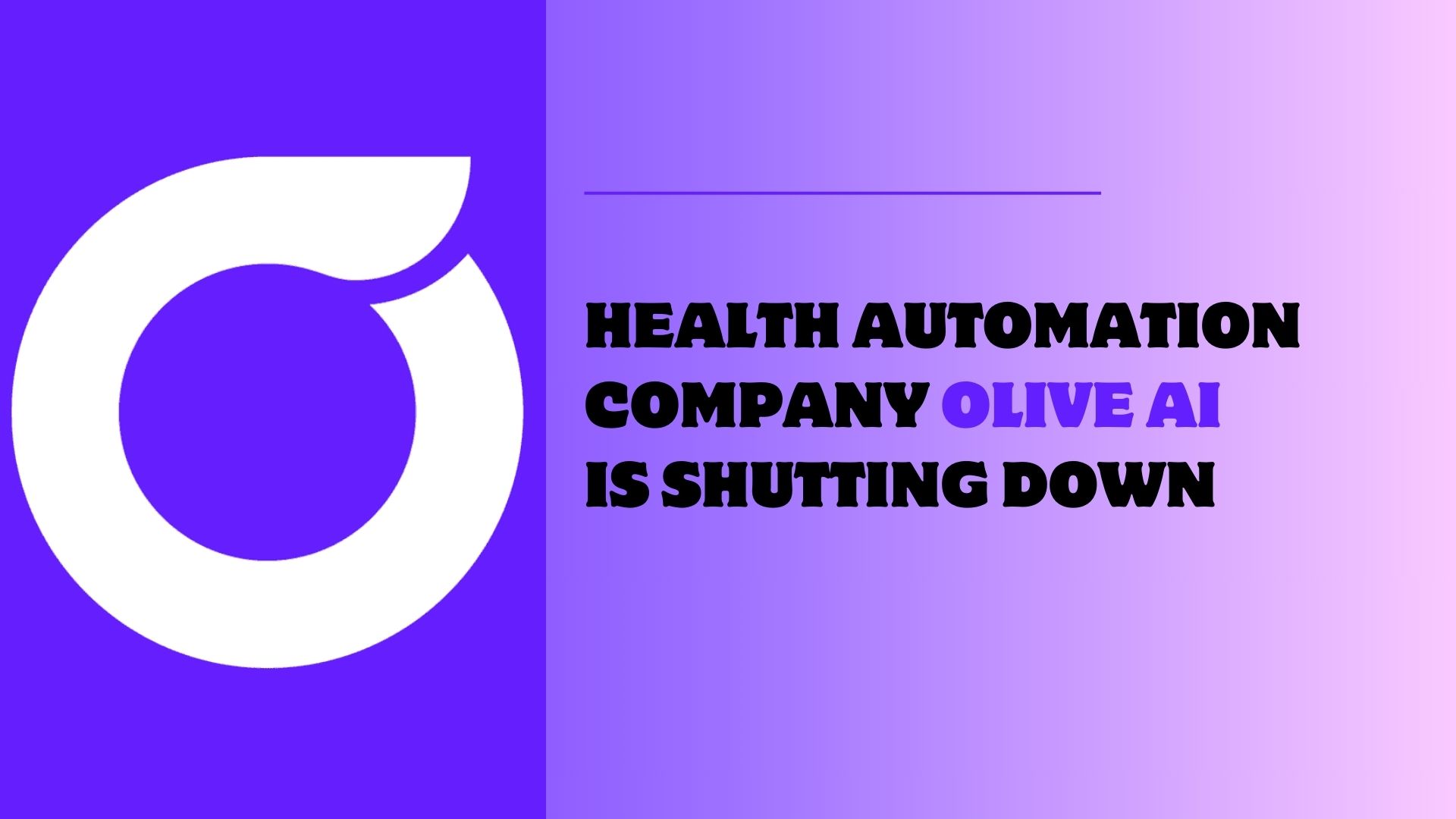Health Automation Company Olive AI Is Shutting Down

In the rapidly evolving world of healthcare automation, few names have made as significant an impact as Olive AI. This article delves deep into the rise, offerings, and challenges faced by this pioneering company. From its innovative solutions that have transformed operations in hundreds of hospitals to the competitive landscape it navigates, we provide a comprehensive overview of Olive AI’s journey in the healthcare sector. Join us as we explore the intricacies of a company that stands at the intersection of healthcare and cutting-edge technology.
Table of Contents
Olive AI Is Shutting Down: What Happened?
Olive AI, once a prominent figure in the healthcare startup scene, has announced the cessation of its operations. After a rapid ascent in 2020 and 2021, driven by the digital health funding surge and the demand for automation during the COVID-19 pandemic, the company has faced a sharp decline. Olive AI’s business operations began to contract last year, leading to the sale of its core business units. The company’s decision to wind down its operations follows the sale of its clearinghouse and patient access business units to Waystar and its prior authorization business unit to Humata Health.
What Does Olive AI Do?
Olive AI developed robotic process automation solutions designed to automate high-volume, critical tasks across various sectors, including revenue cycle, supply chain, IT, and human resources. The company’s AI technologies were implemented in over 900 hospitals across 40 U.S. states.
At its core, the company specializes in developing advanced robotic process automation (RPA) solutions. Here’s a deeper dive into its offerings and impact:
- Comprehensive Automation Solutions: Olive AI’s platform is designed to automate high-volume and critical tasks that span various areas within the healthcare sector. This includes processes related to the revenue cycle, supply chain management, IT operations, and human resources. By automating these tasks, Olive AI helps healthcare institutions streamline operations, reduce errors, and enhance efficiency.
- Deployment in Hospitals: The reach of Olive AI’s technologies is vast. They have been implemented in over 900 hospitals spread across 40 U.S. states. This widespread adoption is a testament to the platform’s reliability and effectiveness in addressing the unique challenges of the healthcare sector.
- Support for Top Health Systems: Olive AI’s enterprise AI solutions have found favor with many leading health systems in the U.S. In fact, more than 20 of the top 100 U.S. health systems have integrated Olive AI’s solutions into their operations, underscoring the platform’s value proposition and its ability to cater to large-scale healthcare needs.
- Innovative Approach: Beyond mere automation, Olive AI focuses on leveraging artificial intelligence to drive innovation in healthcare processes. This means not just replicating human tasks but optimizing them, making predictions, and offering insights that can lead to better patient care and operational efficiency.
In essence, Olive AI is not just an automation tool but a comprehensive solution that aims to revolutionize the way healthcare institutions operate, making them more efficient, error-free, and patient-centric.

Why is Olive AI Shutting Down?
The company’s rapid growth and lack of focus strained its resources, hindering the execution of key initiatives. CEO Sean Lane acknowledged these challenges, citing industry shifts, evolving customer expectations, and challenging market conditions as contributing factors. Economic downturns and strategic “missteps” led to significant layoffs and the sale of various business segments.
Where Is Olive AI Located?
Olive AI is based in Columbus, Ohio.
When Was Olive AI Founded?
Olive AI was established in 2012.
Who Are Olive AI Competitors?
Olive AI, a pioneer in the realm of healthcare automation, faced stiff competition from several key players in the workflow automation sector. Among its top competitors were:
- Apache Airflow: A platform designed to programmatically author, schedule, and monitor workflows. With a significant market share, Apache Airflow has been a dominant force in the industry, boasting a wide range of features that cater to complex workflow needs.
- Camunda: Another major competitor, Camunda offers a BPM (Business Process Management) platform that aids businesses in visualizing and executing their workflow processes. With its user-friendly interface and robust capabilities, Camunda has carved a niche for itself in the market.
- REDCap: Specializing in data collection and management, REDCap provides a secure and intuitive application for building and managing online surveys and databases. Its focus on research-driven environments has made it a preferred choice for many institutions.
- Google Cloud Workflows: As a part of the tech giant’s suite of cloud solutions, Google Cloud Workflows allows users to orchestrate and automate cloud tasks, making it a formidable competitor in the space.
- Reflective: Another notable name in the industry, Reflective offers solutions that focus on automating repetitive tasks, enhancing efficiency, and reducing errors.
These competitors, each with their unique offerings and strengths, have posed significant challenges to Olive AI in the ever-evolving landscape of workflow automation. The competitive nature of this sector underscores the importance of innovation and adaptability for companies aiming to stay ahead.

How Much Is Olive AI worth?
Olive AI achieved a valuation of $4 billion in 2021 after securing a $400 million funding round. Since its inception in 2012, the company raised a total of $902 million.

